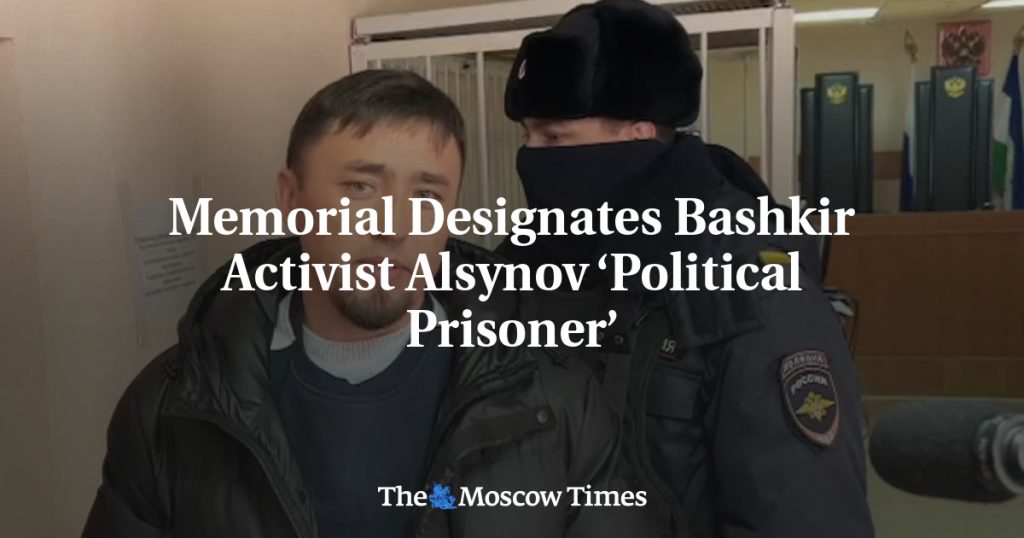Fayil Alsynov, a Bashkir activist, was designated a political prisoner by the Russian rights group Memorial due to his imprisonment earlier this year on charges of inciting interethnic hatred. Many believe he was targeted for speaking out against illegal gold mining in Bashkortostan. Memorial described his case as clear political prosecution, noting the strong public support Alsynov has in his home republic. Mass demonstrations, involving thousands of people, were held in protest following his sentencing in January.
During Alsynov’s trial, authorities accused him of negatively assessing migrant workers and violating their human dignity by referring to them as “black people” in a speech he gave. Alsynov denied these accusations, stating that his words were mistranslated from his native Bashkir language by a government-affiliated linguistic expert. His speech was focused on the environmental issues caused by mineral exploration and mining in the Baymaksky district of Bashkortostan, according to Memorial. The initial verdict in Alsynov’s case in January led to large rallies of support outside the court, resulting in riot police using force to disperse the crowds.
The demonstrations in support of Alsynov in January were some of the largest in Russia since the invasion of Ukraine, leading to sweeping repressions against those who participated in them. The protests were a clear display of public solidarity with the activist and opposition to his imprisonment. Memorial’s designation of Alsynov as a political prisoner highlights concerns about the crackdown on dissent and activism in Russia. Many observers see his case as an example of the government targeting individuals who speak out against issues such as illegal mining and environmental degradation.
The situation has raised alarms among human rights groups and activists about the state of democracy and freedom of speech in Russia. The treatment of Alsynov and the response to the protests in his support have highlighted the challenges faced by those who stand up for their rights in the country. The repressive actions taken by authorities against protesters and the designation of Alsynov as a political prisoner have drawn criticism from the international community. The ongoing crackdown on dissent is seen as a threat to democracy and human rights in Russia.
Despite the challenges faced by activists like Alsynov, the strong public support he has received shows that there are many in Russia who are willing to stand up against injustice and fight for their rights. The determination of the protestors in January and the widespread condemnation of his imprisonment demonstrate a resilience and commitment to justice in the face of adversity. The designation of Alsynov as a political prisoner by Memorial serves as a reminder of the importance of upholding human rights and protecting those who speak out against injustice. Efforts to secure his release and demand justice for him continue, with hopes that his case will bring attention to the broader issues of political repression in Russia.


